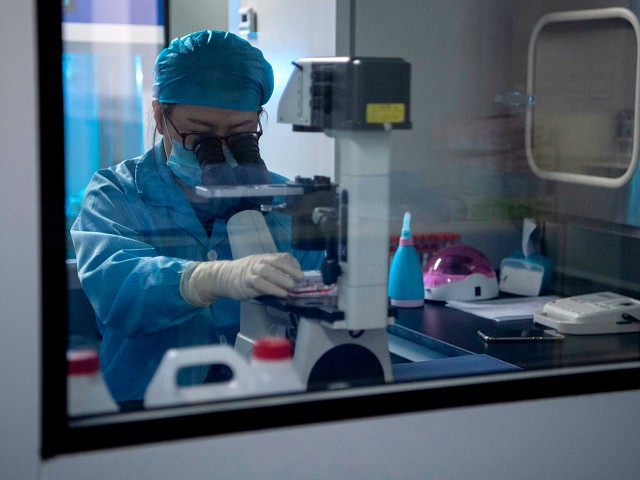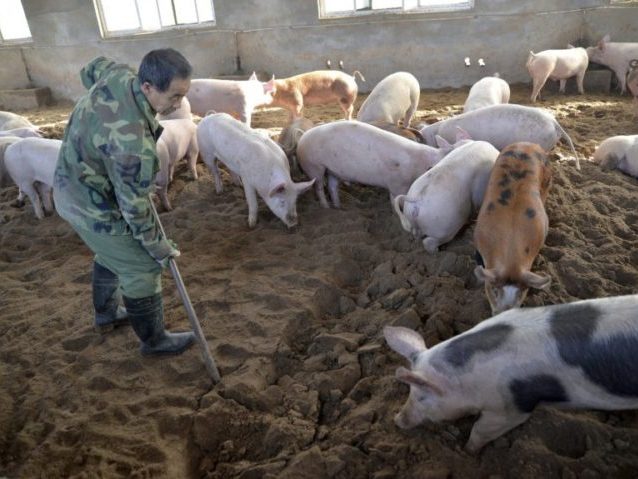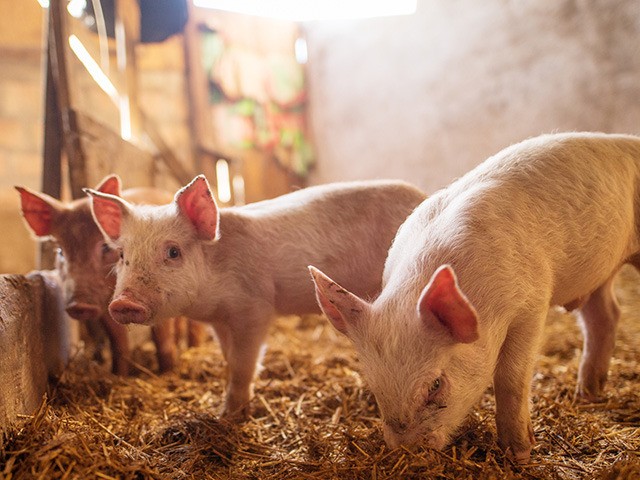Researchers at China’s Nankai University claimed this week that they successfully cloned pigs through an entirely automated process for the first time in March, the South China Morning Post (SCMP) reported on Thursday.
A surrogate sow allegedly birthed seven cloned piglets in March at the College of Artificial Intelligence at Nankai University in northern China’s Tianjin city.
“Each step of the cloning process was automated, and no human operation was involved,” Liu Yaowei, a member of the research team that developed the robotic cloning system, told reporters this week.
Removing humans from a previously developed cloning system helped streamline the process and improved the clones’ success rate, according to Liu.
Nankai University had already claimed to clone pigs using robots in 2017, though the process used at the time included human contributions. The human involvement, the Chinese scientists claimed, correlated with a higher margin of error that Liu’s team claimed to have successfully eliminated during its latest cloning experiment through improved algorithms. These algorithms, used by the scientists’ AI system, allegedly instructed robots to perform actions more accurately than humans.
Chinese scientists produce world’s first pigs cloned entirely by robot https://t.co/vmunjTK5ys
— South China Morning Post (@SCMPNews) June 2, 2022
“Our AI-powered system can calculate the strain within a cell and direct the robot to use minimal force to complete the cloning process, which reduces the cell damage caused by human hands,” Liu said this week.
Nankai University’s cloning development, if true, is especially significant in China, which is the world’s top consumer and producer of pork. The nation currently relies heavily on the import of breeding pigs to sustain its pork industry. A reliable technique for cloning pigs could provide a cheaper pork source for China’s agriculture industry that would additionally benefit Chinese consumers.

This photo taken on September 2, 2019 shows a laboratory technician checking samples with a microscope at the Chinese company Sinogene, a pet cloning outfit which has cloned more than 40 pet dogs since 2017, in Beijing. (STR/AFP via Getty Images)
China’s pork industry took a massive hit from 2018 to 2019 when a nationwide outbreak of the African swine fever virus decimated the nation’s pig population and killed off much of its domestic breeding pool. Beijing has promoted an agricultural campaign in the years since then designed to wean Chinese pig farmers off of imported stock and encourage them to instead breed self-sustaining herds.

A worker digs in a fermentation bed at an organic pig farm in Handan in northern China’s Hebei province. (Chinatopix via AP)
China’s government has enrolled roughly 100 hog farms into the state-backed program. One participant of the initiative is a Chinese pig breeding company called Best Genetics Group (BGG).
“We must insist on our own independent breeding,” Hao Wenjie, BGG’s head breeder, told Reuters on May 27.
“Only then can we provide high-quality seeds, or breeding stock, for our market and break this need for everyone to go to foreign varieties,” she added.
Hao spoke from a BGG farm located approximately 20 miles outside Chifeng, which is a small city in northern China’s Inner Mongolia Autonomous Region.
“Raising a pig in China costs about two-and-a-half times more than in the United States due to costly imported feed and high levels of disease,” Reuters observed in May, adding, “Genetic improvements for cheaper meat are thus in high demand.”
The announcement of China’s latest pig cloning development this week follows years of bizarre reproductive experiments out of China, including scientists claiming to have impregnated male rats (in 2021) and produced gene-edited human babies (in 2018). In the rodent experiment, Chinese scientists say they stitched together a male and female rat. They subsequently transferred a uterus from the female to the male, and then implanted embryos from the female into the male’s transplanted uterus. In the gene-editing experiment, scientists said they created “the world’s first genetically edited babies — twin girls,” using the CRISPR gene-editing tool. A Chinese court sentenced the lead scientist on the project, He Jiankui, to three years in prison in December 2019 for “illegal medical practice,” as the use of CRISPR on human embryos is considered unethical.

COMMENTS
Please let us know if you're having issues with commenting.